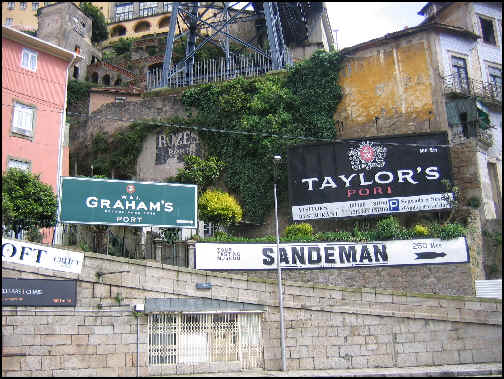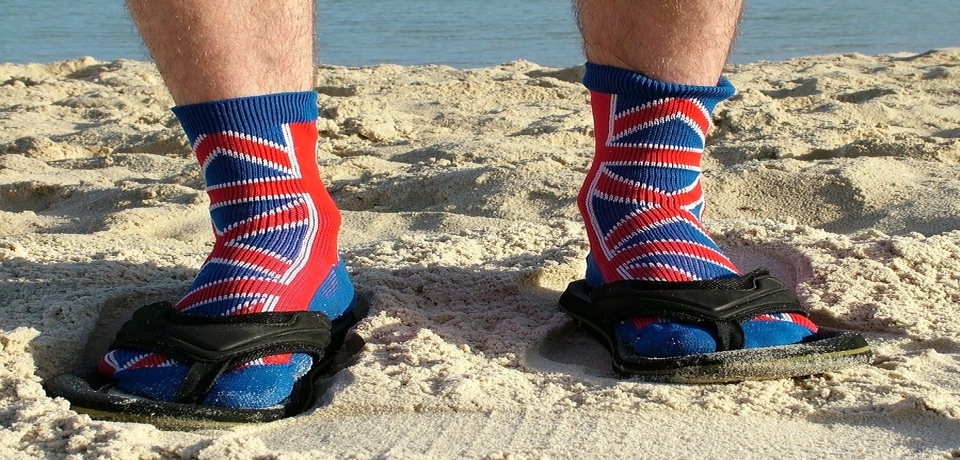(Editor’s note: Terry Boyd also contributed to this post on the future of British tourism in Portugal.)
Due to Covid rules, non-essential travel in and out of non-European Union countries is prohibited at the moment with exception of very low risk countries such as Australia. So with the United Kingdom no longer in the EU, the same Covid restrictions travel rules for Americans or Brazilians will apply now to British holidaymakers.
And the situation isn’t looking good, COVID-wise, in the UK. On 30 December, the UK recorded almost 56,000 new cases within 24 hours, the pandemic record.
What does the future of British tourism in Portugal look like?
Three compelling facts lead us to ask about the future of British tourism in Portugal:
• About 2 million British tourists visit Portugal every year, one of the highest among foreign nationalities (Algarve alone received 1.2 million Brits in 2019).
• In 2019, 19.8 percent of Portugal’s gross domestic product came from tourism.
• At this early stage, no one knows exactly what will happen as Brexit officially starts on 1 January 2021.
British presence in Portugal
A quick look at those three facts makes us wonder about the future of tourism in Portugal as well as the many livelihoods associated with it. British tourism in Portugal historically has been crucial for local businesses. Moreover, the two countries have deep, long historical and cultural ties.

For example, it is very easy to spot the British presence in the South of Portugal. And by “presence,” I do not only mean people, but also food options, brands, music in bars and clubs as well as billboards carrying names of British companies setting up projects in the Algarve region.
Brexit will, of course, affect the holiday choices of many British people whose frequent trips to Portugal have been a part and parcel of their lives. What makes the situation even more ambiguous are the travel restrictions associated with the pandemic, the strict coronavirus travel rules banning non-essential travel for non-EU countries.
As of 22 December, both Portugal and Spain have suspended travel from the UK in attempts to stop a more infectious variant of COVID-19 detected in England. Moreover, with Britain now out of the EU, future pandemic measures for non-EU members will apply to Brits, compounding the impact of Brexit on Portuguese tourism.
Vitor Cavalcante, Paulo M. M. Rodrigues and Joao Pereira dos Santos, a group of researchers from the Nova School of Business and Economics, published a paper – “Lonely Planet: The impact of Brexit on tourism” –on the issue.
They state that:
Our main finding suggests that the growth of British tourists to Portugal, compared to that from other EU nationalities, increased 16-percent less than what it would have in the absence of the referendum and the depreciation of the British pound. The effects were not immediate and took a few quarters to materialize. Moreover, the Algarve, the most touristic regions of Portugal, appears to be the most affected in the country.
Time will tell
What the researchers emphasize here is that the impact of Brexit on Portuguese tourism will take some time to manifest itself as there has been a gradual decline between the 2016 referendum and 2021. That said, the new trade bill signed on 24 December will have little effect on tourism, and Britain apparently has avoided flight disruptions had transportation agreements lapsed. We say “apparently,” because the agreement only addresses goods and trade, not services. EU officials will only address regulations on services starting this month.
On the bright side, João Pereira Santos points to some ways through which the Portuguese tourism sector could reinvent itself when the pandemic crisis recedes, one of which is the efficiency with which Portugal handled the crisis (especially in the breakout of the pandemic).
This could potentially make Portugal a “safe” destination compared to other countries in Europe.
Moreover, starting this month, British citizens will not need a visa to enter Portugal if they are spending fewer than 90 days within 180 days. If a British citizen wishes to stay longer, he or she will have to apply for a visa or a work permit depending on the purpose of their stay. But most casual tourists seeking a short stay in the sun will not feel any change at the Portuguese border control.
The only problem will be for those who stay in Portugal, commonly in the Algarve, for longer periods or who will need to be in Portugal for longer than 90 days within the time limit of 180 days. More on the requirement for entering Portugal can be found on the British government website here.
It may be a bit delusional to assume that Brexit will have no impact on Portuguese tourism. The numbers simply do not support that. However, it is possible to say that it will not be as bad as some people fear. A big part of the tourism crisis now worldwide is due to Covid-19. With the vaccination process starting, it may be possible to speak of a summer where things start picking up.
Even with some decline in British contribution, Portugal will be ready to open up for tourists from multiple destinations, and the job market may get back on track.

About the author:
Sarah Nagaty is a PhD researcher of cultural studies in Lisbon. She’s lived in Portugal for two years.
As a student of cultural studies, Sarah is drawn to what connects people from different backgrounds to new cultures and places, how they relate to their new surroundings and what kind of activities they could engage with in their new hometowns.
See all of Sarah’s Dispatches posts here.
See Dispatches’s Lisbon story archive here.
Sarah Nagaty has a PhD in cultural studies, She’s lived in Portugal for six years.
As a student of cultural studies, Sarah is drawn to what connects people from different backgrounds to new cultures and places, how they relate to their new surroundings and what kind of activities they could engage with in their new hometowns.















